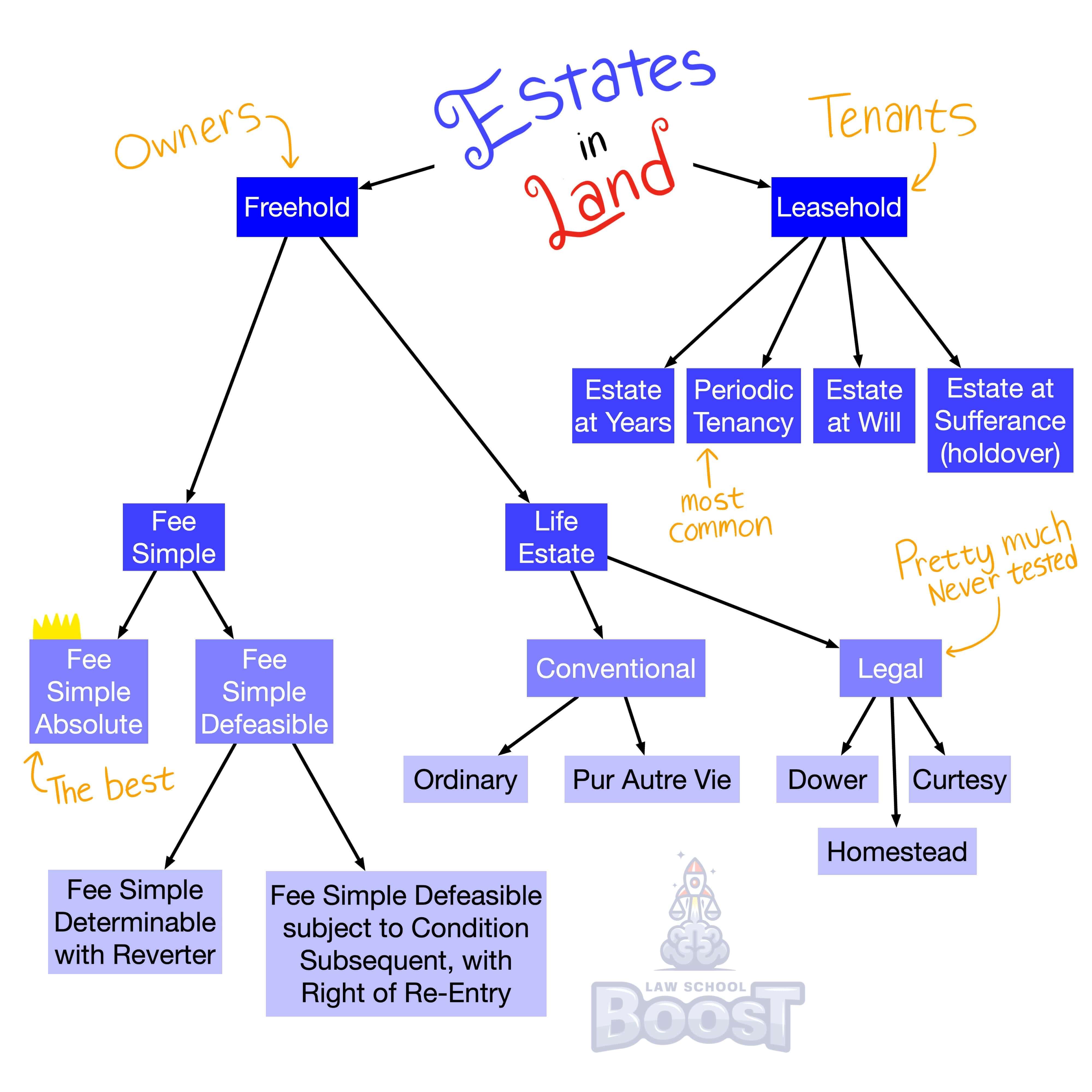😀
Real Property • Landlord-Tenant
PROP#076
Legal Definition
The tenant has a duty to pay rent. If the lease ends before the agreed-upon date, the tenant must pay proportionate rent. A landlord cannot retain the security deposit beyond actual damages, although a deposit called a bonus can be retained. If the tenant surrenders the property to the landlord, the duty to pay rent ends.
Plain English Explanation
Obviously, a tenant has an obligation to pay their rent.
Under common law, the rent agreed upon for the term is due in full. However, most states have passed laws that make rent accrue daily. In other words, in scenarios where a lease terminates early, the tenant need not pay rent for the full term. Rather, they owe rent for the days prior to termination.
Additionally, security deposits are commonly misunderstood. They are not an insurance policy to act as a backup in case a tenant does not pay, and a landlord can't dip into them to offset lack of payment from a tenant. Security deposits are only applicable to whatever terms they are accepted under. In other words, most security deposits are only available to landlords in case of damage to the property, and the law will enforce this restriction. Even if the tenant owes money to the landlord for other issues, the landlord must bring a separate civil claim and not simply use the security deposit they possess.
Under common law, the rent agreed upon for the term is due in full. However, most states have passed laws that make rent accrue daily. In other words, in scenarios where a lease terminates early, the tenant need not pay rent for the full term. Rather, they owe rent for the days prior to termination.
Additionally, security deposits are commonly misunderstood. They are not an insurance policy to act as a backup in case a tenant does not pay, and a landlord can't dip into them to offset lack of payment from a tenant. Security deposits are only applicable to whatever terms they are accepted under. In other words, most security deposits are only available to landlords in case of damage to the property, and the law will enforce this restriction. Even if the tenant owes money to the landlord for other issues, the landlord must bring a separate civil claim and not simply use the security deposit they possess.
Hypothetical
Hypo 1: Amy rents an apartment from Bob for $500 per month and signs a lease for 6 months. She pays a security deposit of $500 to offset the cost of any damage to the apartment. After 5 months, Amy is no longer able to pay Bob for rent. Amy moves out at the end of the 6th month and leaves the apartment in perfect condition. Bob decides to keep Amy's security deposit to cover the month of rent she owes him. Result: Bob is not allowed to do this. Security deposits are sacred. Here, because Amy returned the apartment in perfect condition, Bob must return her $500 security deposit even though Amy owes him $500 for rent. Amy must voluntarily choose to give Bob the money he is owed, or Bob must ask a court to force Amy to pay.
Visual Aids

Related Concepts
How do lease covenants affect a landlord-tenant relationship where one party breaches?
How may a landlord waive a covenant prohibiting assignment?
If a leasehold is condemned or taken via eminent domain, what is the effect on a tenant's duty to pay rent?
If an assignment occurs, what is the relationship between the assignee and the landlord?
If a tenant breaches one or more of their duties, what remedies are available to the landlord?
If a tenant violates a covenant against assignment or sublease, what remedies are available to the landlord?
In a landlord-tenant relationship, who has a duty of restoration when the premises being leased are destroyed due to no fault of either party?
In assessing a landlord's tort liability, what six duties does a landlord have to make the premises safe?
In assessing a landlord-tenant issue, what is an assignment?
In assessing a landlord-tenant relationship, what are the landlord's duties?
In assessing a landlord-tenant relationship, what are the tenant's duties?
In assessing a landlord-tenant relationship, what is the result of a tenant's covenant to repair?
What are the exceptions to the hold-over doctrine?
What constitutes a constructive eviction?
What constitutes an actual eviction?
What constitutes a partial eviction?
What is a landlord's duty to deliver possession?
What is a landlord's duty to provide quiet enjoyment?
What is a landlord's duty to repair?
What is a leasehold estate?
What is a periodic tenancy and how does it terminate?
What is a retaliatory eviction?
What is a sublease?
What is a tenancy at sufferance and how does it terminate?
What is a tenancy at will and how does it terminate?
What is a tenancy for years and how does it terminate?
What is a tenant's duty to not use the premises for an illegal purpose?
What is a tenant's duty to repair?
What is the hold-over doctrine?
What is the implied warranty of habitability, and what remedies are available to the tenant if breached?
When does a covenant run with the land?
When does a tenant cause ameliorative waste?
When does a tenant cause permissive waste?
When does a tenant cause voluntary waste?


